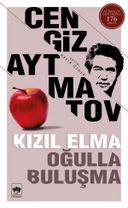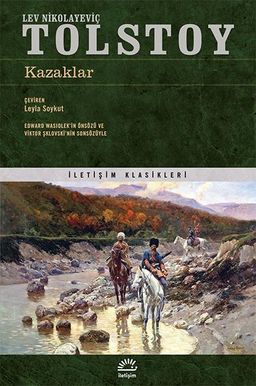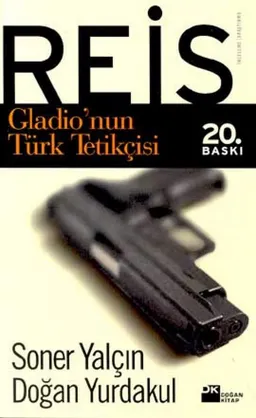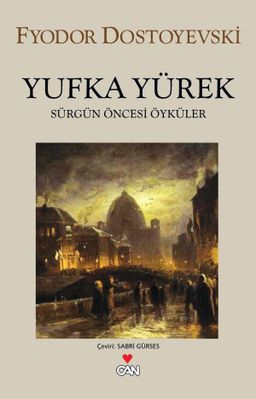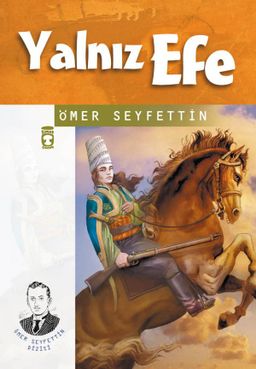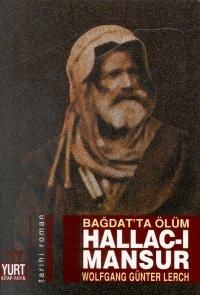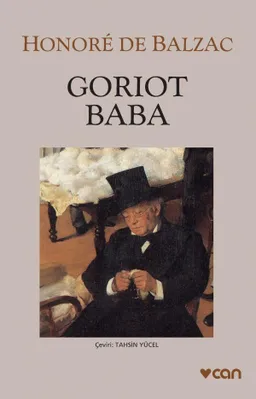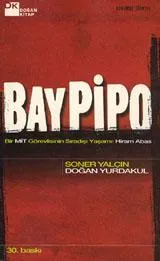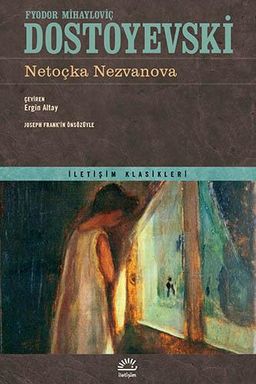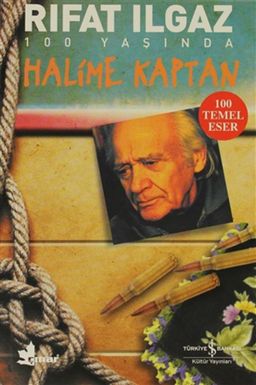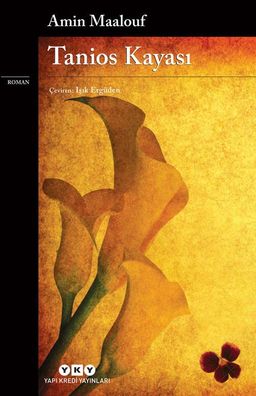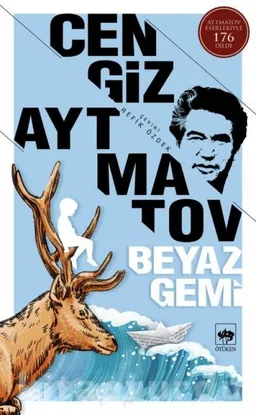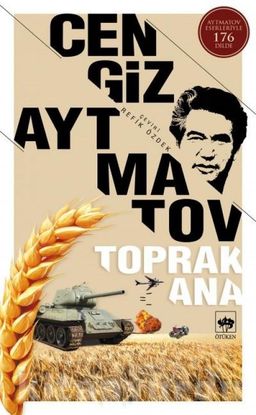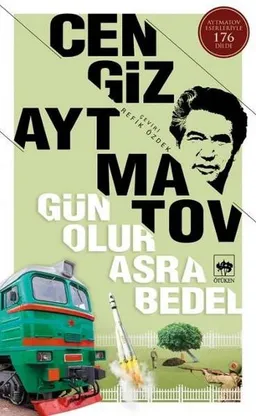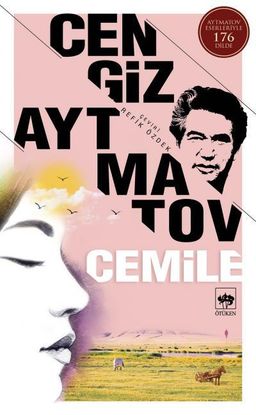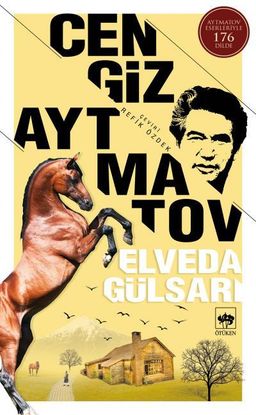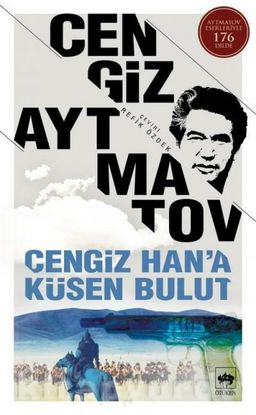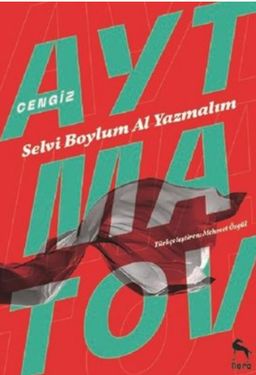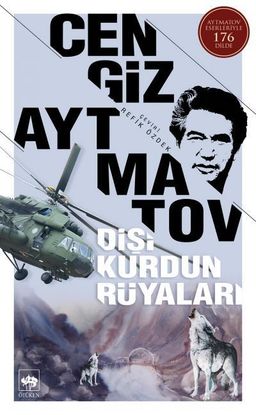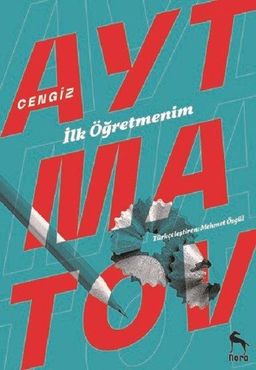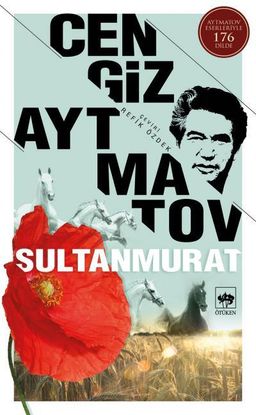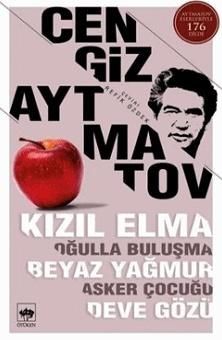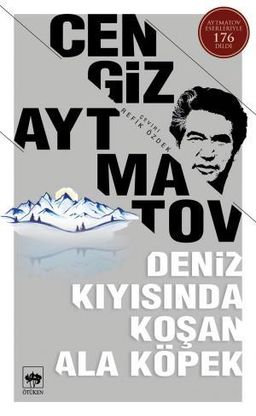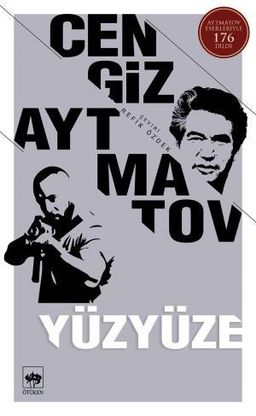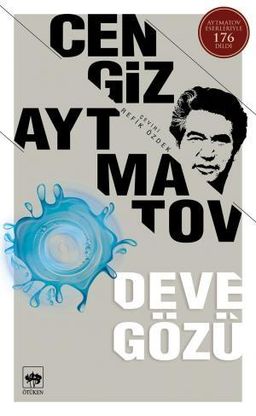About Kızıl Elma
Kızıl Elma subject, statistics, prices and more here.About
Cengiz Aytmatov insanın kendisine, diğerlerine ve hayata karşı mücadelesini, kısacası yeryüzü tecrübesini ustalıkla hikâye ediyor.
Bir yitirişin ve peşi sıra gelen uyanışın anlatıldığı Kızıl Elma, eşinden ayrılmak isteyen İsabekov’un kızı Anara’nın çocuk masumiyetinde ailesini yeniden buluşunun çarpıcı hikâyesidir.
Oğulla Buluşma ise kapanmayan yaraların ve ertelenen yüzleşmelerin yükünü anlatır. Savaşta kaybettiği oğlunun hatırasını içinde yaşatan Çordon, gerçek ölümün unutulmak olduğunu anlayacaktır. Zira baba ölmedikçe oğul, oğul ölmedikçe de baba yaşamaya devam eder!
Author: Cengiz Aytmatov
Translator: Mehmet Özgül
Translator: Serdar Arıkan
Translator: Fatma Arıkan
Türler:
Estimated Reading Time: 1 hrs. 28 min.Page Number: 52Publication Date: 1 June 2021First Publication Date: 5 November 2005Publisher: Ketebe YayınlarıISBN: 9786257303941Country: TürkiyeLanguage: TürkçeFormat: Karton kapak
Other Editions
Kızıl Elma - Oğulla Buluşma
2,916 okunmaÖtüken Neşriyat · November 2018 · 52 syf
Kızıl Elma
327 okunmaKetebe Yayınları · 1 June 2021 · 52 syf
Kızıl Elma - Oğulla Buluşma - Beyaz Yağmur - Asker Çocuğu
301 okunmaElips Kitap · October 2012 · 139 syf
Kızıl Elma
106 okunmaElips Yayınevi · 5 November 2005 · 79 syf
Book Statistics
All statistics
Statistics of this edition
Reader Profile of the Book
Kadın% 63.3
Erkek% 36.7
0-12 Yaş
13-17 Yaş
18-24 Yaş
25-34 Yaş
35-44 Yaş
45-54 Yaş
55-64 Yaş
65+ Yaş
About the Author
Cengiz AytmatovYazar · 68 books
This text has been automatically translated from tt. Show Original
Cengiz Aytmatov, (Kyrgyz: Чыңгыз Айтматов (Çıňğız Aytmatov), Russian: Чингиз Торекулович Айтматов) (b. 12 December 1 928, Kyrgyzstan - 10 June 2008, Germany).
Famous Kyrgyz Turk writer, journalist, translator and politician. He was born on December 12, 1928 in the village of Sheker of Talas province in northwestern Kyrgyzstan. His father, Torekul Aytmatov, was a distinguished statesman in Soviet Kyrgyzstan, but was arrested in 1937 and executed by firing squad in 1938. His mother, Nagima Hamziyevna Abdulvaliyeva, a Tatar girl, was a theater actress. Its name was inspired by Genghis Khan.
His youth coincided with a troubled period. At that time, he had to struggle with the political system that was just beginning to establish itself, and also with the war. He started working at a very young age; because II. The effects of World War II on the USSR also affected young people. Since adults were at war, young people had a great responsibility. At the age of fourteen, he joined the secretariat in his village. Here he worked in jobs such as counting agricultural machinery and tax collector. From his village, he went to Kazakhstan and studied at Cambul Veterinary Technical School. Later, he went to Bishkek, the current capital of Kyrgyzstan, and continued his education at the Frunze Agricultural Institute. He then transferred to the Maxim Gorky Literary Institute and studied in Moscow between 1956 and 1958. He started writing in the Pravda newspaper in these years. He became famous with his works and was accepted as a member of the Union of Soviet Writers in 1957. He received the Lenin Prize in 1963. His works have been translated into more than one hundred and fifty languages. He represented the Soviet Union and the Russian Federation as ambassador between 1990 and 1994, and then the Kyrgyz Republic until 2008.
Aytmatov fell ill on May 16, 2008, in Kazan, the capital of Russia's Republic of Tatarstan, where he went to film the movie of his novel "A Day Will Be Worth a Centuries" and was brought to Germany for treatment with a diagnosis of kidney failure. Cengiz Aytmatov, who was treated at the Clinicum Nord in Nuremberg, Germany, fell into a coma. He died in Nuremberg on June 10, 2008.
Books
Beyaz Gemi
8.2/10
Toprak Ana
8.9/10
Gün Olur Asra Bedel
8.4/10
Cemile
7.8/10
Elveda Gülsarı
8.4/10
Cengiz Han'a Küsen Bulut
8.5/10
Selvi Boylum Al Yazmalım
8.8/10
Dişi Kurdun Rüyaları
8.7/10
İlk Öğretmenim
9/10
Sultanmurat
8.3/10
Kızıl Elma - Oğulla Buluşma - ...
8.1/10
Deniz Kıyısında Koşan Ala Köpe...
8.5/10
Yüzyüze
8.4/10
Kızıl Elma - Oğulla Buluşma
8.2/10
Deve Gözü
7.8/10
